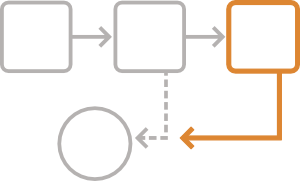Our Trusted HR Support Solutions
Our HR Support services go beyond ticking the compliance box to provide effective human resource and workplace relations support that:
- builds pragmatic strategies to boost engagement and improve productivity.
- efficiently manages daily responsibilities, particularly during periods of high workload or when resources are limited.
We work across various sectors including: healthcare, retail, mining, finance, engineering, government, manufacturing, legal, judiciary, not-for-profits, and transport.
Our experienced HR support specialists provide the most appropriate workplace solution that cater to your needs.

Need immediate advice?
Get in touch to work through your Professional HR Support Services for Businesses needs
Our HR Support Service Packages

Policies and procedures
Our HR support service helps develop HR policies and procedures that ensure compliance within the context of your unique workplace.
Psychosocial safety
Foster workplace cultures free of psychosocial risks and establish good standard of practice in the workplace.
Conflict resolution and management of complaints
Implement prevention strategies and if a matter should escalate ensure appropriate, procedurally fair and compliant processes are in place.
On call employer advice
Human resource management is a broad field encompassing workplace relations, employee support, learning and development, strategy as well as safety and well-being. We provide you access to our subject matter experts to help resolve your unique HR support needs.
Wage compliance
Ensure your business stays compliant with our expert wage and payroll compliance team. With the increased wage legislation affecting the industrial landscape and increases to wage theft penalties, it is as important as ever to be confident that your payroll is compliant.
Employment contracts
Keep on top of changes to legislation and your workplace by ensuring your employment contracts and other formal arrangements are up to date and relevant.
We draft employment contracts to suit your organisation’s specific needs and requirements to provide legally binding, risk mitigating approach to the employment relationship.
Enterprise Agreements (EAs)
An organisation can spend years building trust with their employees only to find that it gets destroyed in a matter of days when EA negotiations become heated and cumbersome.
Our experienced EA negotiators work with clients to achieve an outcome that is in the interests of the organisation and its people. Furthermore, they are there to assist with some of the challenging industrial roadblocks that may be experienced along the way.
Workplace Investigations
If a matter escalates, our team of appropriately qualified workplace Investigators are able to conduct independent and highly effective interventions when allegations of inappropriate behaviour surface.
Workplace Mediations
If a matter escalates, our team of appropriately qualified workplace Mediators are able to conduct independent and highly effective interventions when allegations of inappropriate behaviour surface.
Our HR Support Service on Personalised Coaching
A key part about an effective HR support service is providing solutions that help invest in your people.
Reduce turnover and build loyalty with our HR Coaching to help employees reach their goals, develop specific skills through training, and understand the laws and best practices of the Australian workplace.
Our HR support services, involving coaching include:
- Analysis of the current skills and training needs of individual HR professionals on your team
- The creation of a personal development plan (PDP) that will help individual HR staff to develop specific skills, including training options that suit their learning style
- Ongoing coaching and support from HR experts.